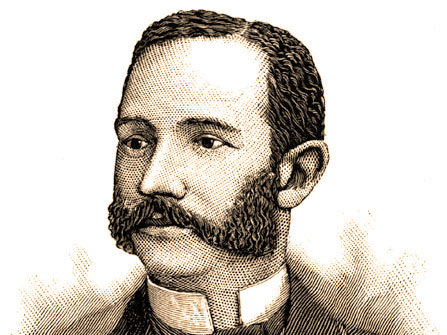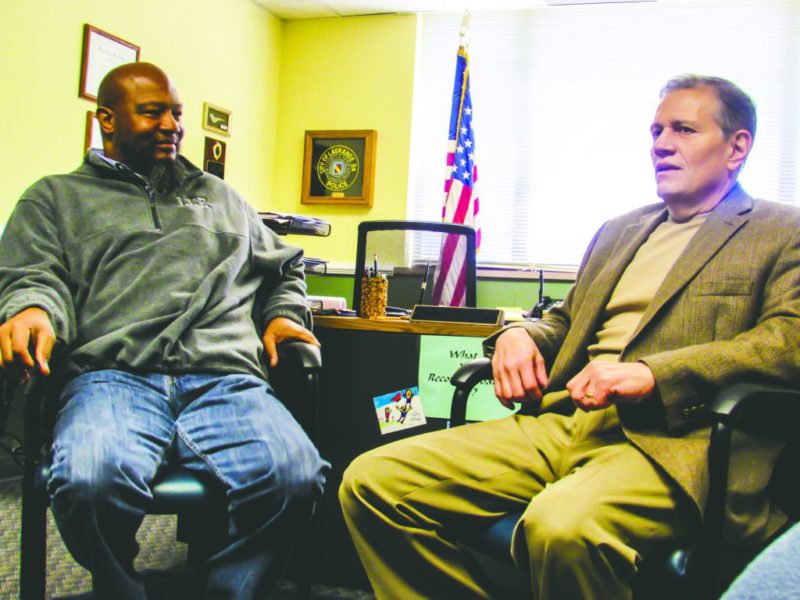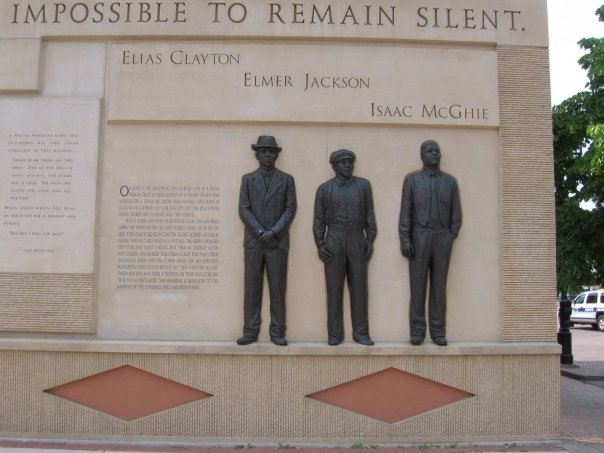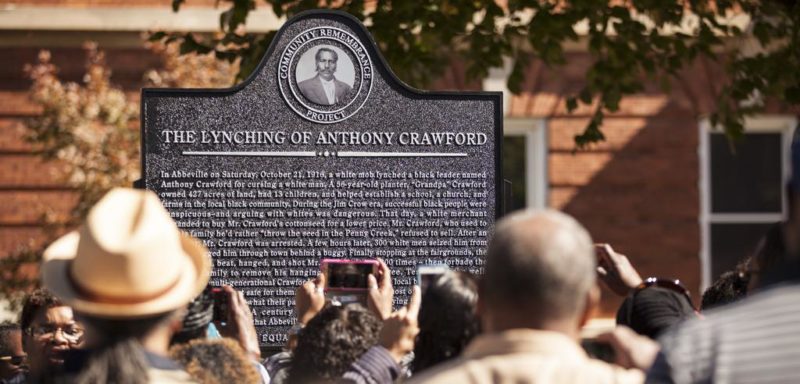Posts Tagged ‘Lynching’
Ceremony Of Remembrance Commemorates Brutal Lynching One Hundred Years Ago
A racially diverse group of citizens of Memphis TN holds a ceremony and erects a marker memorializing the very brutal lynching of Ell Persons exactly one century ago.
Read MoreHow Does a City Choose to Remember its Past?
Many Milwaukeeans are familiar with the 1854 abolitionist rescue of Joshua Glover, an African American who escaped slavery and found sanctuary in Wisconsin. Far fewer know about the horrific racial lynching of George Marshall Clark, a free black man, that happened only seven years later in Milwaukee. What was their story, and how have we remembered these two men?
Read MoreGeorge Marshall Clark
George Marshall Clark was 22 years old when he was murdered. He had been a barber, a trade he learned from his father, George Sr., who ran his business on Wisconsin Avenue. Clark resided with his friend, James Shelton, near 5th and State Streets. Shelton and Clark were arrested together, but Shelton escaped being dragged…
Read MoreAustin Callaway
Austin Callaway Share Special Exhibits The Freedom-Lovers’ Roll Call Wall Stories Behind the Postcards: Paintings and Collages of Jennifer Scott Risking Everything: The Fight for Black Voting Rights Portraiture of Resistance Memorial to the Victims of Lynching Freedom-Lovers’ Pledge Echoes of Equality: Art Inspired by Memphis and Maya Explore Our Galleries African Peoples Before Captivity…
Read MoreGeorgia Police Chief, Other White Leaders Apologize for 1940 Lynching
The police chief of Lagrange, Georgia, along with the city’s mayor and the white business community, issued an apology to the Callaway family and the NAACP for the 1940 lynching of teenaged Austin Callaway. A commemorative ceremony and memorial plaque will be placed to honor Callaway and other victims of lynchings in the county.
Read MoreJoin abhm this wednesday for a book talk @ the villard square library!
The book talk for A Time of Terror will include readings from the book, an explanation of how it came to be, and a discussion of its relevance for today’s readers.
Read More“Always In Season” Film on Lynching and Restoration to Screen in Milwaukee
Always in Season is a feature-length documentary film that shows the impact of past and current racial terrorism on our country today through the stories of four communities affected by lynchings. Screening at ABHM’s 2017 Founder’s Day Gathering for Racial Repair and Reconciliation will be followed by a Q & A and small group discussions with representatives from groups around the country who are healing through commemorations of lynchings and other forms of racial terrorism.
Read MoreDr. Cameron’s Memoir To Be Presented at SE Wisconsin Festival of Books 11/4/16
Where to hear a talk about and get copies of the greatly expanded and awardwinning 3rd edition of A Time of Terror: A Survivor’s Story by lynching survivor James Cameron.
Read MoreHundreds Dedicate Lynching Marker to Anthony Crawford in Abbeville, South Carolina
A century ago, a white mob beat, stabbed, shot, and hung Mr. Crawford, a 56-year-old black farmer, in the Abbeville town square, after he dared to argue with a white merchant over the price of cottonseed. The patriarch of a large, multi-generational family, and the owner of 427 acres of land, Mr. Crawford was a successful farmer and leader whose murder had long-reaching effects. In October 2016, hundreds gathered in Abbeville for a Freedom School, during which college students, activists, and leaders led discussions about our country’s history of racial injustice and its contemporary legacies. Those present included more than 100 of Anthony Crawford’s descendants, who wore black armbands and buttons in his memory, as well as members of the families of Emmett Till, Ida B. Wells, and Malcolm X, who came to lend support and words of encouragement.
Read MoreBuzzFeed Features Dr. Cameron and ABHM in “How to Survive a Lynching”
Lynching, in the American imagination, is considered to be solely the provenance of the Confederacy. But one particular souvenir photo, taken in Marion, Indiana, in 1930 has served as the most glaring visual reminder of the country’s decades-long spectacle of racism and public murder. The photo of the lynching of two Indiana teenagers would never grace the pages of the local paper. But that image is still everywhere. This article explains the background of the photo, what became of the sole survivor of that lynching, and the relevance of that event today.
Read More


